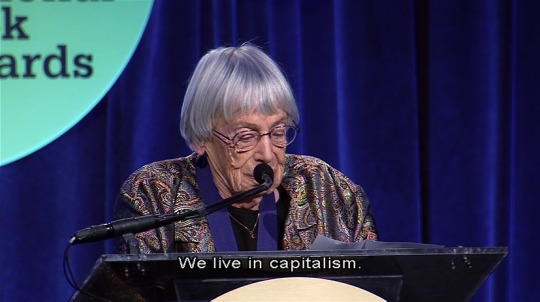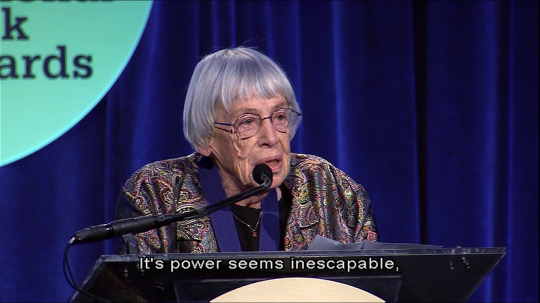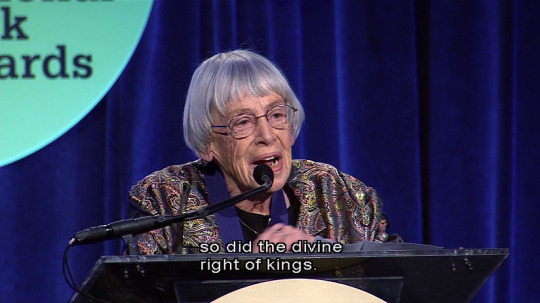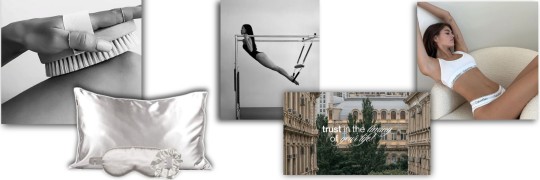poems, brainstorms, unfinished work, and excerpts from stories I'll never write.
Don't wanna be here? Send us removal request.
Text



pretty privilege in academia
'pretty privilege' is the idea that people who are perceived as more attractive often receive more opportunities, attention, and rewards compared to those who are considered less attractive. this concept is not limited to social settings but also especially extends to (in) academic environments.
in academia, research has shown that physically attractive students tend to receive higher grades because they are perceived as more intelligent, even when their actual performance does not differ significantly from their less attractive peers. this bias can affect everything from classroom interactions to evaluations and recommendations, potentially influencing a student's academic trajectory.
the underlying reason for this phenomenon is the "physical attractiveness stereotype," which assumes that attractive individuals possess positive qualities such as intelligence, sociability, and competence. it leads to preferential treatment and better opportunities for those who are deemed attractive.
it's important to be aware of this bias and strive to treat everyone fairly, regardless of their appearance. while we can't always control how others perceive us, we can make a conscious effort to judge people based on their abilities and contributions rather than their looks.
now, there is no benefit in ignoring it - because it simply will always exist. instead, you can choose to take advantage of it.
why people take advantage of pretty privilege:
increased opportunities: leveraging your attractiveness can open doors to more opportunities that might not be as easily accessible otherwise.
positive perceptions: attractive individuals are often perceived more favorably, which can lead to better treatment and more support from your peers and instructors.
enhanced confidence: knowing that you are perceived positively can boost your confidence, making you more likely to engage and participate actively in academic settings.
competitive edge: in highly competitive environments, any advantage can make a significant difference. taking advantage of pretty privilege can provide an edge over others.
but you should never only rely on your appearance to get you further in life - it is only to play the same game.
if you're interested in enhancing your appearance, here are some tips to help you feel more confident and attractive. it's important to remember that beauty is subjective and varies from person to person, and self-confidence plays a significant role in how others perceive you.
skincare: have a daily routine (cleanse, tone, and moisturize your skin. remember to use products suited to your skin type.) and apply sunscreen daily.
hair care: regularly maintain your hair, keeping it clean, well-trimmed, and styled in a way that suits your face shape and personal style. use conditioner and hair masks to keep your hair healthy and shiny.
oral hygiene: brush and floss your teeth daily to maintain a bright smile and fresh breath. visit the dentist regularly.
dress well: wear clothes that fit well and flatter your body shape. choose outfits that reflect your personal style and make you feel confident. dress appropriately for different occasions.
accessories: use accessories like jewelry, watches, and scarves to add a touch of elegance and build your outfits. ensure accessories complement your overall look without overpowering it.
physical health: engage in regular physical activity to stay fit and healthy. exercise can improve your posture and boost your confidence. eat a balanced diet rich in fruits, vegetables, lean proteins, and whole grains to support your health and appearance. drink plenty of water to keep your skin hydrated and glowing.
attitude: a genuine smile can make you appear more approachable and attractive. maintain good posture, make eye contact, and use confident body language.
social skills: improve your communication skills to connect better with others. show genuine interest in others and practice empathy in your interactions. charisma and behavior can make or break appearing attractive.
remember! enhancing your appearance should be about making yourself feel good and confident, rather than solely seeking external validation. what you find attractive and enjoy should come before what other people like.
read this for more information: Pretty Privilege | Applied Social Psychology (ASP)
i hope this was helpful! ❤️nene
146 notes
·
View notes
Photo

Detail: Herodias, 1843, by Paul Delaroche.
39K notes
·
View notes
Photo



Worlds of Ursula K. Le Guin (2018), dir. Arwen Curry
142K notes
·
View notes
Text

Ada Limón, “To Be Made Whole”, On Being with Krista Tippett
30K notes
·
View notes
Text
“I think it’s very healthy to spend time alone. You need to know how to be alone and not be defined by another person.”
— Oscar Wilde
9K notes
·
View notes
Text



"Self-lullaby", Vahan Teryan (translated by Tathev Simonyan)
351 notes
·
View notes
Text
GLOW UP GUIDE FOR 2025⠀

READ: On average, it takes more than 2 months before a new behavior becomes automatic — 66 days to be exact. And considering that 2025 is precisely these many days away, why not start with our glow up plan already?

Physical Glow Up-
BODY
— 5-10K steps a day.
— 7-8 hours of sleep.
— workout everyday for 1 hr atleast- yoga/stretching/pilates/cardio. a workout may take one hour, but your mood will be boosted for the next 12 hours.
— posture training.
— sunlight exposure after waking up for at least 10 minutes.
NUTRITION
— 2-3 liters of water every day.
— limit your caffeine intake.
— avoid sugars as much as you can.
— high protein diet, pre and probiotics.
— more fruits and veggies (+ green smoothies if you like).
— no junk/processed food/trans fat.
— no eating after 8 pm.
SKINCARE
— be clear on your skin type (oily, dry, combination, sensitive).
— once you're clear, use these accordingly- cleanser, toner, targeted serum, eye cream, moisturizer, sunscreen (≥50 spf).
— keep your bedding clean as well.
— no picking of skin on your lips, cuticle etc.
— gua sha to help improve blood circulation and lessen toxins.
— cold therapy may take three to five minutes of being uncomfortable, but your energy levels will be boosted for the rest of the day.
— remove makeup before you go to bed.
BODY CARE
— shower every day.
— exfoliate 2x a week.
— use body lotion (shea butter/aloe vera gel/coconut oil).
HAIR CARE
— wash hair 2-3x a week
— oil your scalp 2x a week, at least 3 hours before shampoo.
— hair mask 1x per week.
— never brush wet hair.
— use silk pillow case.
HYGIENE
— brush your teeth 2x a day, clean tongue and the roof of the mouth daily.
— floss daily.
— cut your nails 1x a week, never remove the cuticles.
— glycolic acid under arm for odor and discoloration.
— never use soap on your coochie.

Mental Glow Up-
MINDSET
— set clear goals- define and breakdown your aspirations.
— start your mornings with positive affirmations.
— surround yourself with uplifting content and people.
— be shamelessly selfish to your career and mental health, remove anyone or anything that doesn't align with your priorities and wellbeing.
— boost your brain health by these 4 neuroscience tools:
difficult first: start your day with the most difficult task (cortisol and dopamine are high in the body meaning that your body/mind is primed to work).
rest your eyes: introduce a micro-pause after learning by resting/closing your eyes - will help retain information better.
tomorrow's worries: write tomorrow's to-do list before bed as it is proven to be effective in helping you fall asleep.
find time to play: engage in low-stake play. can be anything you find fun but where the outcome doesn't matter (induces neuroplasticity + reduces stress).
MIND
— meditation might take as low as ten minutes, but your focus will be improved for the rest of the day.
— no social media after waking up and at least an hour before bed.
— keep aside 1 hr of time to read daily! reading a new book may take five hours, but you will keep the knowledge forever.
— journaling, gratitude.
— digital detox once a week or for 12 hours.
— limit unnecessary screentime, unfollow or cut off people you don't want to see.
JOURNALING
— choose a regular time each day to journal, making it a part of your routine.
— find a quiet, comfortable place free from distractions. light a candle if you want.
— allow your thoughts to flow without censoring or editing.
— write about your feelings and emotions to understand them better. write about things you are thankful for to boost your mood. write about your short-term and long-term goals. identify what triggers certain emotions or reactions
— set a timer for 5-10 minutes and write continuously during that time.
— reflect on both positive experiences and challenges.
— make lists, journal your thoughts on these questions.
— journal at night to clear your mind before bedtime, because emotions and thoughts lose their power once we acknowledge them.
— a gratitude practice may take five minutes, but your mindset will be shifted for the rest of the day.
AFFIRMATIONS
— customise affirmations to your needs.

Personal Life-
WEEKLY TASKS
— initiate small changes: begin with small, manageable tasks such as making your bed or cleaning your room every sunday.
— celebrate your success: reward yourself when you achieve your goals or have a consistently productive week. consider treats like buying flowers for yourself or watching your favorite show.
DAILY WORK
— set achievable goals: establish realistic goals for the day, week, or month ahead.
— track your progress.
— organise your work space, declutter your shelves etc.
— embrace the power of lists: keep a list of tasks to be done and their deadlines. this way, you start each day with a clear plan. to make it visually appealing and motivating, consider using productivity apps like evernote, habit tracker, or notion.
PRODUCTIVITY TIPS
— wake up early.
— plan ahead everything, do scheduling. you can use:
google calendar / notion / tasks .
— if the task takes less than 2 minutes to finish, do it immediately.
— countdown rule, if you are procrastinating, count 1-2-3-4-5 and jump.
— start slow, don't rush and try to do everything at one time.
— follow a proper routine, use app locks based on screentime.
— pomodoro technique, 25 min work, and 5 min break.
— schedule longer break times as well e.g 30 min nap.

5K notes
·
View notes
Text
"How do you write such realistic dialogue-" I TALK TO MYSELF. I TALK TO MYSELF AND I PRETEND I AM THE ONE SAYING THE LINE. LIKE SANITY IS SLOWLY SLIPPING FROM BETWEEN MY FINGERS WITH EVERY MEASLY WORD THEY TYPE OUT. THAT IS HOW.
147K notes
·
View notes
Text

Andrea Gibson, Lord of the Butterflies
56K notes
·
View notes
Text
You will not use AI to get ideas for your story. You will lie on the floor and have wretched visions like god intended
152K notes
·
View notes
Photo

Velimir Khlebnikov, Collected Works, Vol. 3: Selected Poems, tr. by Paul Schmidt
24K notes
·
View notes
Text
The path isn’t a straight line; it’s a spiral. You continually come back to things you thought you understood and see deeper truths.
Barry H. Gillespie
9K notes
·
View notes
Text
Today's study session



Look how pretty this library is!
2h Economy and valuation notes
Repeat out loud the lithophytic systems for the Geobotany exam (45min in total)
Duolingo daily german lesson

Tricks and Tips
To study effectively and prepare well for exams, I use some specific strategies that have often helped me achieve the highest scores.
The 15-Minute Method
Since the Pomodoro Technique doesn't work for me (my attention span can't handle 25 minutes), I use the 15-minute method. I find that when I repeat tasks, time passes quickly, and I often don't take a break in between. Instead, I restart the timer immediately because it feels satisfying to stay focused. This approach works better for me because I struggle with longer periods of concentration.
Studying in the Library or at University
Changing my study environment helps me be more productive. Studying in a library or at the university provides a dedicated, distraction-free space that can enhance focus and motivation. The new setting creates a clear boundary between study time and leisure time, which helps me stay engaged and use my study time more effectively.
90 notes
·
View notes
Text
something genuinely insane about going somewhere and getting to feel “i had some of the worst years of my life here” and “i was loved here, once” simultaneously.
61K notes
·
View notes
Text




I hate how I can create amazing scenarios in my mind but I can't write a paragraph
7K notes
·
View notes
Text
Tips for writing those gala scenes, from someone who goes to them occasionally:
Generally you unbutton and re-button a suit coat when you sit down and stand up.
You’re supposed to hold wine or champagne glasses by the stem to avoid warming up the liquid inside. A character out of their depth might hold the glass around the sides instead.
When rich/important people forget your name and they’re drunk, they usually just tell you that they don’t remember or completely skip over any opportunity to use your name so they don’t look silly.
A good way to indicate you don’t want to shake someone’s hand at an event is to hold a drink in your right hand (and if you’re a woman, a purse in the other so you definitely can’t shift the glass to another hand and then shake)
Americans who still kiss cheeks as a welcome generally don’t press lips to cheeks, it’s more of a touch of cheek to cheek or even a hover (these days, mostly to avoid smudging a woman’s makeup)
The distinctions between dress codes (black tie, cocktail, etc) are very intricate but obvious to those who know how to look. If you wear a short skirt to a black tie event for example, people would clock that instantly even if the dress itself was very formal. Same thing goes for certain articles of men’s clothing.
Open bars / cash bars at events usually carry limited options. They’re meant to serve lots of people very quickly, so nobody is getting a cosmo or a Manhattan etc.
Members of the press generally aren’t allowed to freely circulate at nicer galas/events without a very good reason. When they do, they need to identify themselves before talking with someone.
89K notes
·
View notes
